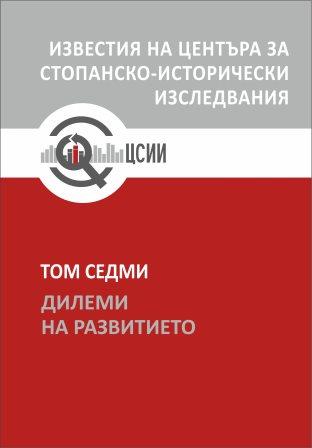Етрополе – предизвикателствата пред един дербенджийски, рударски и книжовен център през XVI и XVII век (по непубликувани османски документи)
Etropole – the Challenges of a Derbentci, Mining and Literature Center in the 16th and 17th Centuries (According to Unpublished Ottoman Documents)
Author(s): Krasimira MutafovaSubject(s): History, Economy, Micro-Economics, Economic history, Social history, 16th Century, 17th Century, Human Resources in Economy, Socio-Economic Research
Published by: Център за стопанско-исторически изследвания
Keywords: Etropole; Ottoman period; Mufassal defteris; madenci; derbenci; Etropole Monastery “St. Troitsa”
Summary/Abstract: Although it is a village, according to the way it is designated in the Ottoman register material from the 16th and 17th centuries as ‘qarye’, Etropole has established itself as a significant mining (madanci), craft and literary center during this period. A circumstance that undoubtly is of a particular importance and has impacted on its significance as a mining, derbentci and literary center, is its designation as a passage zone of centuries-old importance. The location and natural conditions of the region, favorable and encouraging for trade contacts and the development of a number of crafts, are also important. An opportunity to trace the development of Etropole as a Derbentci and later mining center, as well as its overall economic characteristics and socio-economic profile of its inhabitants from the second half of the 15th to the first half of the 17th century, gives the voluminous and still unpublished compact information contained in several mufassal (detailed, nominal) defters from 1516–1517, 15141–1545, 1613–1614 and 1642–1646, selected for the purposes of the study. The annotated register data reveal a rather heterogeneous socio- economic profile of the residents of Etropole. It is difficult to determine which status of the settlement – derbentci or mining (madenci) – during the Ottoman period proved to be the leading one for its economic and cultural development. But it is indisputable that the economic rise of Etropole in the 16th and 17th centuries coincided with the activation of the literary and spiritual life, attested in the available sources published by the great Bulgarian medievalist Petar Mutafchiev, as well as in a number of attributions and author's notes of writers, priests and wealthy residents of Etropole. The comparative analysis of the newly translated and summarized register data convincingly highlights the close connection between the heyday of mining, the Ottoman fiscal and legal privileges granted to the residents of Etropole and the overall literary and educational activity of the Etropole Monastery “St. Troitsa” – an important cultural and spiritual center.
Journal: Известия на Центъра за стопанско-исторически изследвания
- Issue Year: VII/2022
- Issue No: 1
- Page Range: 221-235
- Page Count: 15
- Language: Bulgarian

